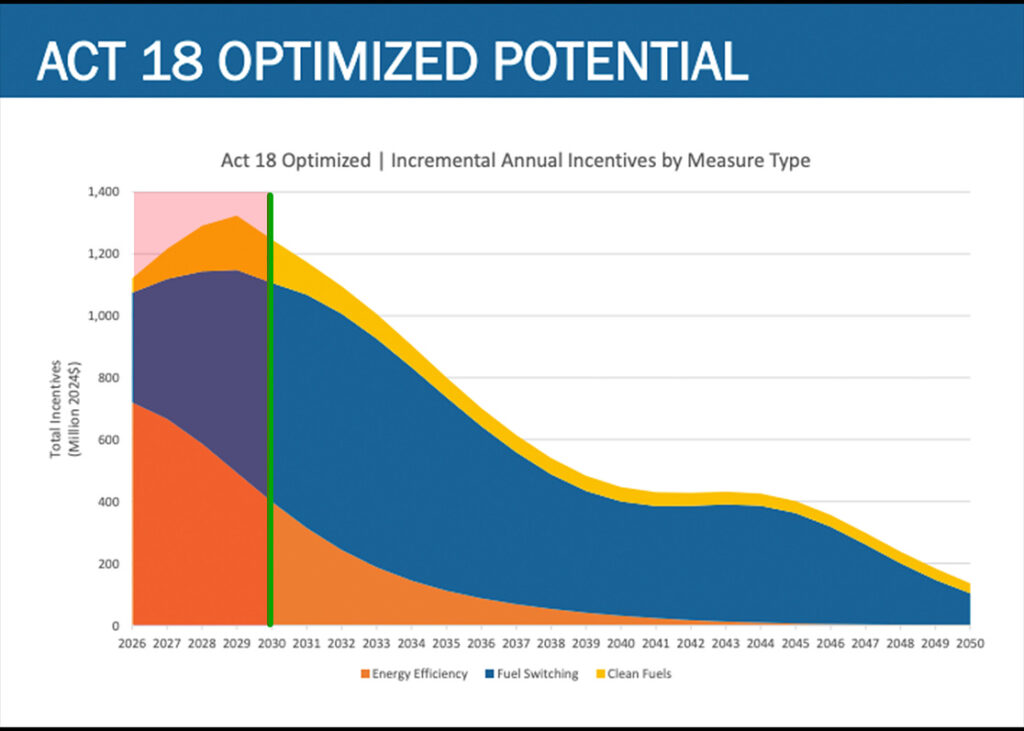When Agency of Natural Resources secretary Julie Moore testified to the Senate Natural Resources & Energy Committee back in January 2023 that the cost of the Clean Heat Standard program would be $2 billion over the first five years, 2026-2030, — an amount that she said would result in an additional 70¢ per gallon for home heating fuels – oh, did she catch hell!
Editor: No matter where you are, keep reading – If democrats get control of where you live, they will do this to you. If they have control, you need to try to take it back.
Up to that point, following a December puff piece, VT Digger, along with the rest of the Vermont press corps, had essentially been perpetrating a media blackout on the subject of the Clean Heat Standard because the less Vermonters knew about the awful program, the more likely the Democrats’/Progressives’ signature piece of climate change legislation was to pass. But Moore’s sticker shock estimate caused their crack environmental reporter to spring into action with “Lawmakers dismiss Natural Resources secretary’s ‘back-of-the-envelope’ math on the Affordable Heat Act,” giving Senator Chris Bray (D-Addison), the law’s primary shepherd, and Jared Duval, a climate lobbyist and member of the Climate Council, carte blanche to attack Moore’s math.
Bray called Moore’s figures “incomplete and inaccurate” and that they shouldn’t be given the same weight as “professional” studies. Duval called them “inappropriately selective, improperly done, and deeply misleading.”
When Moore presented on the House side, she received an equally hostile reception, and in one case, Representative Gabrielle Stebbins (D-Burlington) sternly admonished Moore to “lighten up on it.” “It” being Moore’s sincere efforts to determine how much a major new program will cost folks like you and me before that program is passed into law. We can’t have that now, can we?
Critics seized on Moore’s honest assessment of the limitations of her own calculations, “I’m confident this is wrong. I could easily be off by a factor of two here,” to imply that her assumptions were not just wildly wrong but wildly high.
Well, it turns out that Secretary Moore’s calculations were, in fact, wildly wrong. They were wildly low.
The Clean Heat Standard Potential Study, Final Draft Results were presented to the Public Utilities Commission’s Technical Advisory Group (TAG) on July 25, and according to their professional (let’s see if Senator Bray gives them weight) calculations, the Clean Heat Standard program will cost Vermonters $17.3 billion between 2026 and 2050. In the up-front years that Secretary Moore analyzed (2026-2030), the report shows the cost at being around $7.25 billion, or over three and a half times more than Moore’s estimates.

Of course, the big question we all want to know, and the one Judy Taranovich of Proctor Gas asked in the final seconds of the meeting, is what this means for the future cost of a gallon of home heating oil with the 70¢ carbon tax rate no longer being the benchmark.
Drumroll… and… we’re back to dealing with the numerical Voldemort syndrome – the number that shall not be named!
TJ Poor of the Department of Public Services told Taranovich that he didn’t want to say at this point because this presentation was a draft and would be modified based on feedback from the meeting for a final presentation in the Fall. But, hey, I’ll throw out a back of the napkin calculation here to chew on: 70¢ x 3.6 = $2.52. On WVMT’s Morning Drive (7/26/24) Matt Cota who represents Vermont Fuel Dealers on the TAG said the report implies a $3.20 per gallon carbon tax.
And even that could end up being low for a few reasons, but the big one is that neither Moore’s calculations nor the Potential Study include the administrative costs of running the Clean Heat Standard, which will be exceptionally high, nor does either include the cost of any social safety net program(s) to protect low-income Vermonters who are unable for whatever reason to move off of what will be increasingly expensive fossil heating fuels. Such safety nets are demanded in the law as part of a “just transition.” These are real costs everyone seems to be pretending don’t exist.
But whatever the official number turns out to be, it’s going to be absurd. Vermonters cannot afford this. The lawmakers who voted to pass the Clean Heat Standard into law – Act 18 – before doing this sort of cost analysis – in fact, insisted that it not be done before passing the program into law — committed an act of unforgivable negligence. Maybe fraud is a better description because negligence implies the damage was unintended.
And one last point: this $17 billion program is just for the home heating sector of the economy. If we’re going to take the Global Warming Solutions Act at its word, we’ll need an equally ambitious – and expensive – program for the transportation sector (aka a gas and diesel carbon tax) and another for agriculture. All on the same timeline. It’s economic suicide for the state and homicide for household budgets. Repealing the Global Warming Solutions Act should be THE ONLY campaign issue that matters for Vermont state candidates this summer and fall. Ask them early and often if they pledge to vote to repeal it and the Clean Heat Standard first thing next January.
